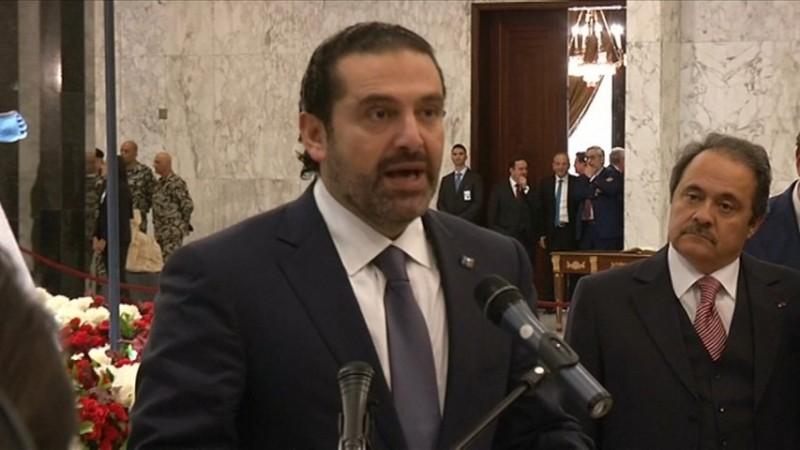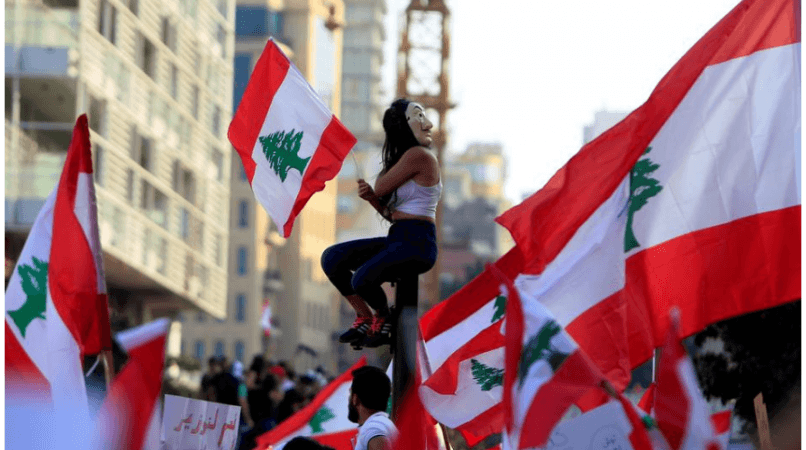
Hundreds of thousands of protestors flooded Lebanese streets on Sunday to agitate against rampant corruption and economic mismanagement that made lives of people difficult in a country that is heavily indebted.
The present agitation steadily grew across the country since people took to streets on Thursday against a proposed tax on WhatsApp calls and other messaging services. Although the plan for new tax has been dropped after a few days, demonstrators are still demanding the government to fix financial problems they face due to the economic crisis. Citizens have been facing tax hikes and dire economic conditions in the heavily indebted country.
Similar to the Arab spring protests in several countries that rocked the Middle East region in 2011, people in the capital city Beirut, Tripoli and Tyre thronged waving the national flag, formed human chains and chanted "those in power should be ousted."
The main demand of the protestors was to completely eradicate rampant corruption, as they alleged that the country's political leaders have amassed wealth through "favourable deals and kickbacks."
Call For Strike
Protestors, who represent a cross-section of the society, have also called for a nation-wide strike on Monday, despite Prime Minister Saad al Hariri's promise for reforms and resignation of several ministers on Sunday, international news agencies said. It is anticipated that shops, banks and educational institutions will be closed on Monday.
"The people want everyone in power to resign, not just the prime minister, Mahmoud Fakih, a protestor in Riad Al-Solh Square in Beirut told Arab News. "They want a technocrat mini-government to establish an electoral law that will ensure proper representation, early parliamentary elections and a new president."

The demonstrators are also demanding new taxes on the rich and wealthy while reducing the tax burden on the common people.
Four ministers from the Lebanese Forces party, an ally of the ruling coalition led by Hariri, resigned from the cabinet, after pressure from protestors. The country's cabinet and parliament seats are equally divided between Christians and Muslims.
The demonstrators also rejected a 72-hour deadline set by the prime minister for his coalition partners to agree on an amicable reform package aimed at resolving the country's worsening economic problems, without additional taxes.
The reform package includes a drastic cut in benefits of ministers and other top-level government officials. It is generally expected that the Hariri's cabinet would meet later today to take a decision on the reform package to resolve the crisis.

















